~ LordM Box of 20 archive, 8/7/13
 lordmarcovan
Posts: 44,026 ✭✭✭✭✭
lordmarcovan
Posts: 44,026 ✭✭✭✭✭
In 2013, I decided to pare down my collections and simplify to just one single "Box of 20" for everything, thereby focusing more on quality than quantity. Still, pursuing quality is an ongoing challenge on my budget. As of the summer of 2013 I have the box full, but there is still a lot of "filler" material in there that I like, but don't totally love.
I originally called this set "The 'ADAM' Collection" (for Ancient, Dark Age, and Medieval.) The idea was a freestyle "Box of 20" collection with no parameters except that everything would predate 1600 AD. Now I've even thrown that restriction out the window, so basically the only parameters here are that the coins must be certified and the collection is still limited to twenty pieces. Otherwise, anything goes. In a way, I have narrowed my focus by limiting myself to just twenty slabbed pieces, but on the other hand, I've opened up my horizons to pursue whatever catches my fancy. It sort of feels liberating to be freed of the constraints of collecting "sets" and being a slave to "structure".
I was running my "Twelve Caesars" Roman collection* in a separate box of its own, but after selling a few of those pieces, I rolled the remainder of them into this box. One day I might break all of this out again into separate Boxes of 20 (ancient, medieval, modern, etc.) but for now I lack the budget and attention span to juggle multiple projects, and if I did, the quality of the individual pieces would become watered down.
So now there is but one Box of 20 for my active collection. For semi-active collections that are not likely to see much buying and selling, I do still have my trademark "Holey Gold Hat", my daughter's 1901 British Empire type set, and my detector finds album.

£= my "top" coin; this usually indicates the most monetarily valuable, since my whims and sentimental "favorites" tend to fluctuate.
¥ = my "bottom" coin; this doesn't necessarily imply I dislike it, but means it will likely be the first out once something else is added.
Ancient Greece: Ionia, Teos, silver trihemiobol, ca. 500-450 BC.
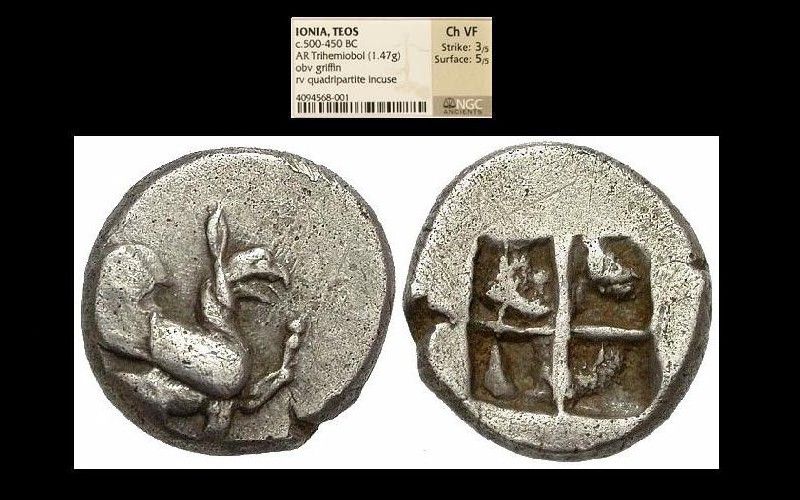
Ancient Greece: Kingdom of Macedon, bronze unit, ca. 359-336 BC.
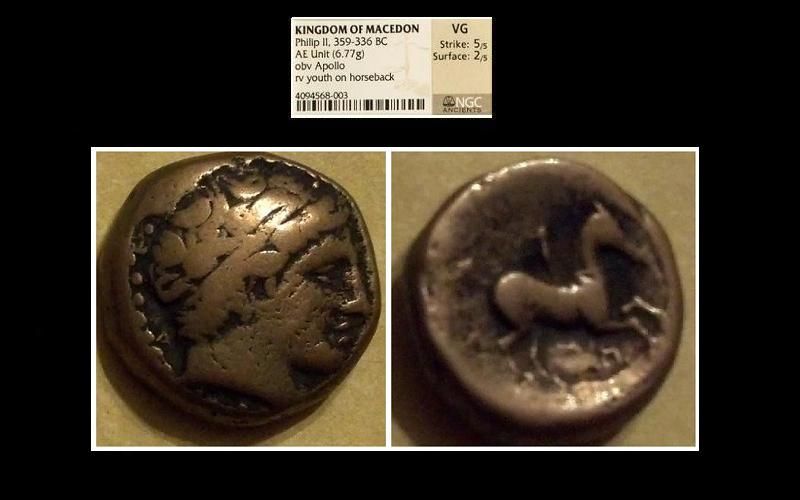
Ancient Greece: Kingdom of Macedon, silver drachm of Alexander III ("The Great"), ca. 336-323 BC, lifetime issue
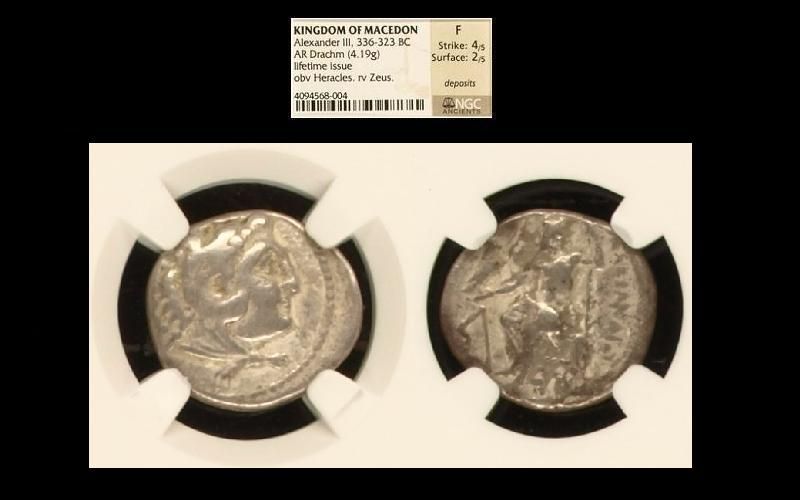
Ancient Greece: Seleucid Kingdom, bronze AE19 of Antiochus VIII, ca. 121-96 BC
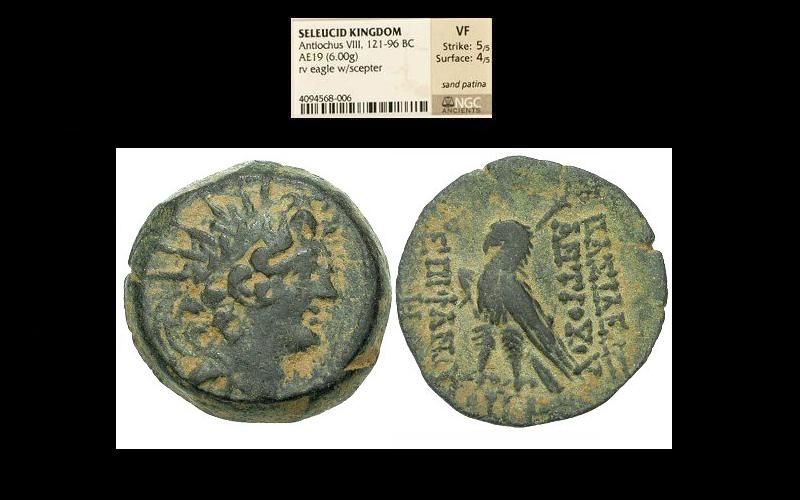
Ancient Rome (Imperatorial): silver denarius of Julius Caesar, lifetime issue, February-March, 44 BC
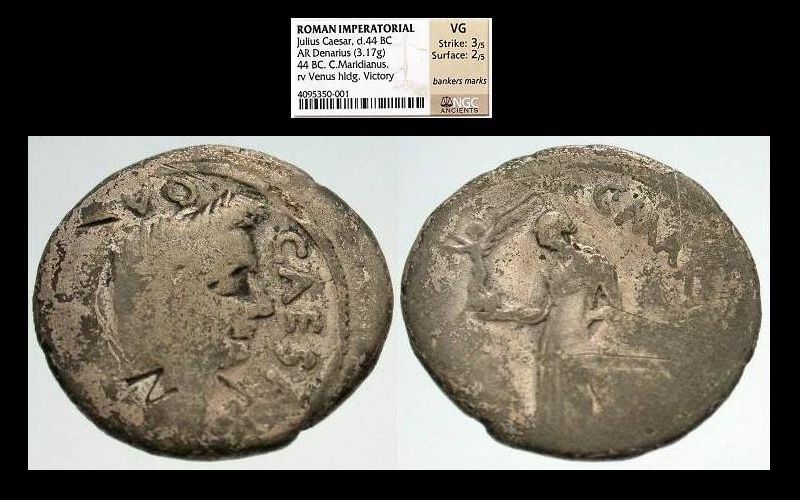
Ancient Rome (Imperial): silver denarius of Tiberius, ca. 14-37 AD: the biblical "Tribute Penny"
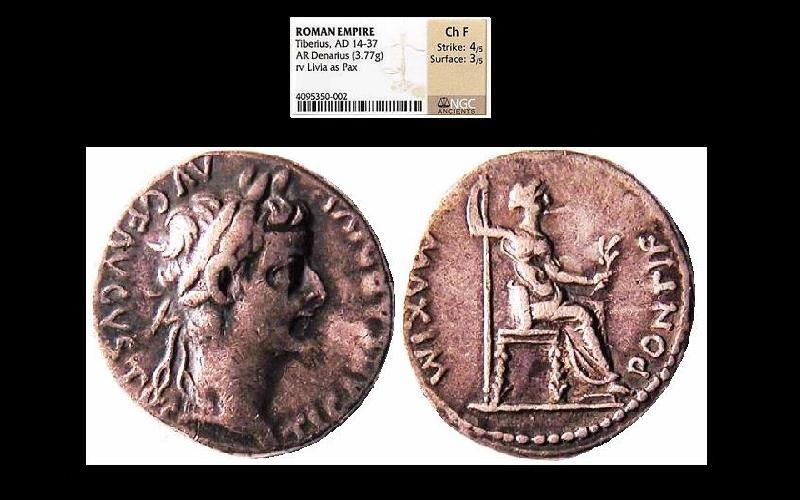
Ancient Rome (Imperial): bronze as of Gaius "Caligula", ca. 37-41 AD
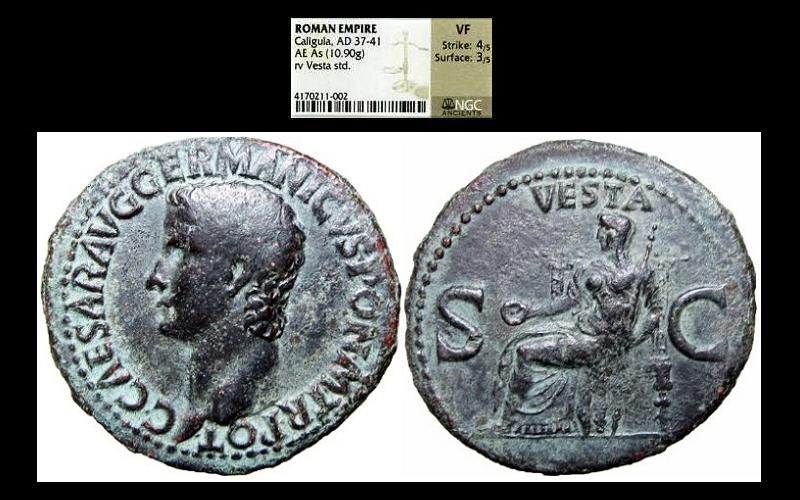
Ancient Rome (Imperial): bronze as of Claudius, ca. 41-54 AD
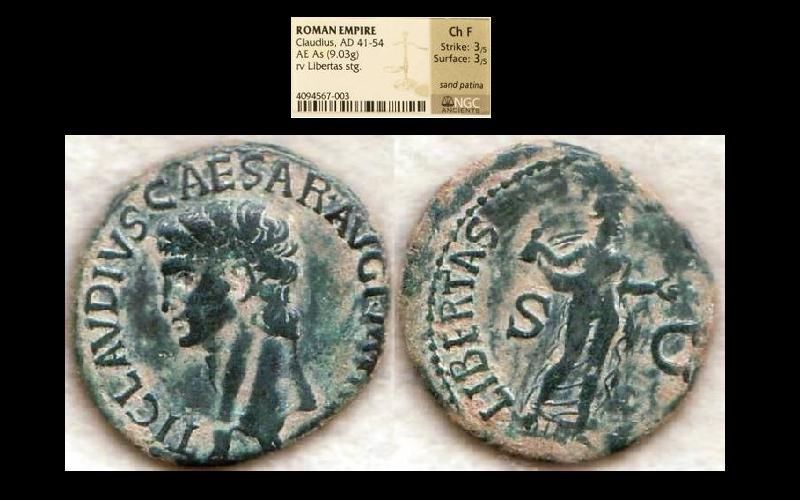
Ancient Rome (Imperial): silver denarius of Otho, ca. January-April, 69 AD
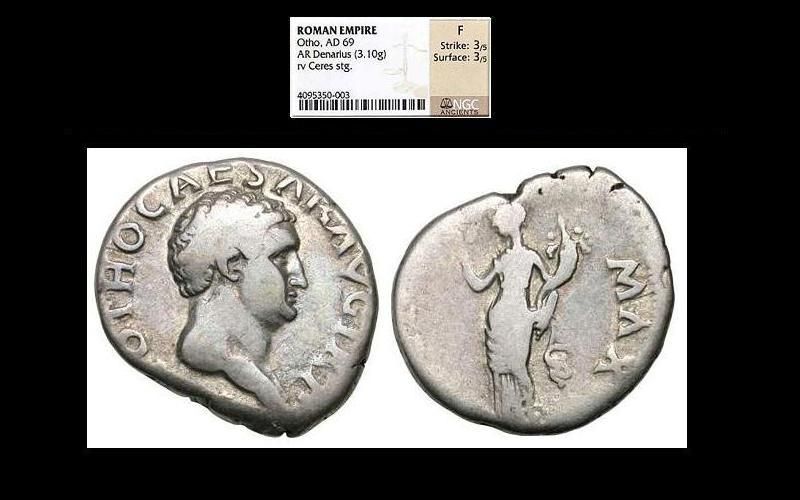
Ancient Rome (Imperial): silver denarius of Domitian, (81-96 AD), struck ca. 92 AD
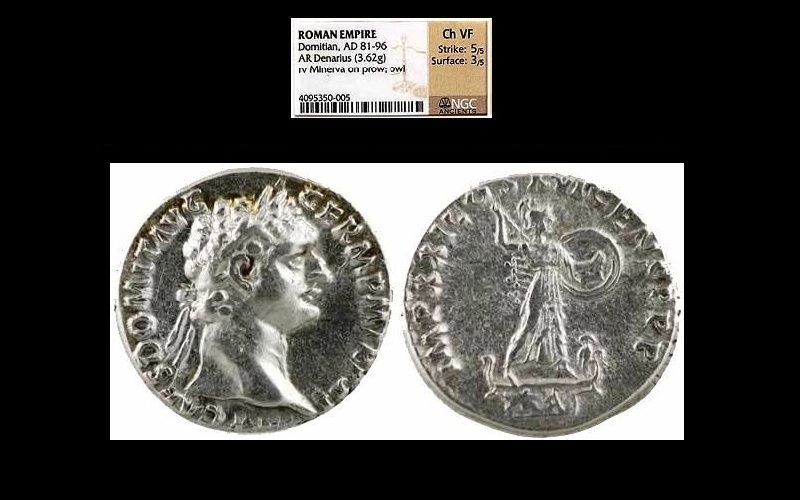
Ancient Rome (Imperial): silver denarius of Trajan (98-117 AD), struck ca. 103-111 AD
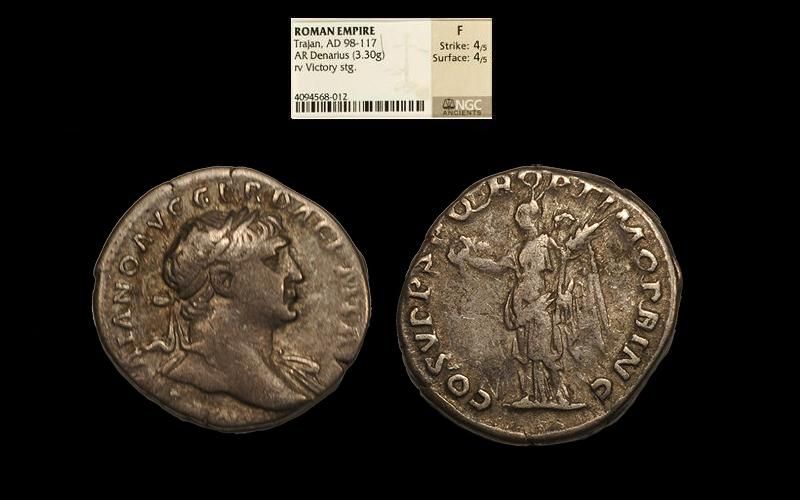
Ancient Rome (Imperial): silver denarius of Antoninus Pius (1838-161 AD), struck ca. 143 AD
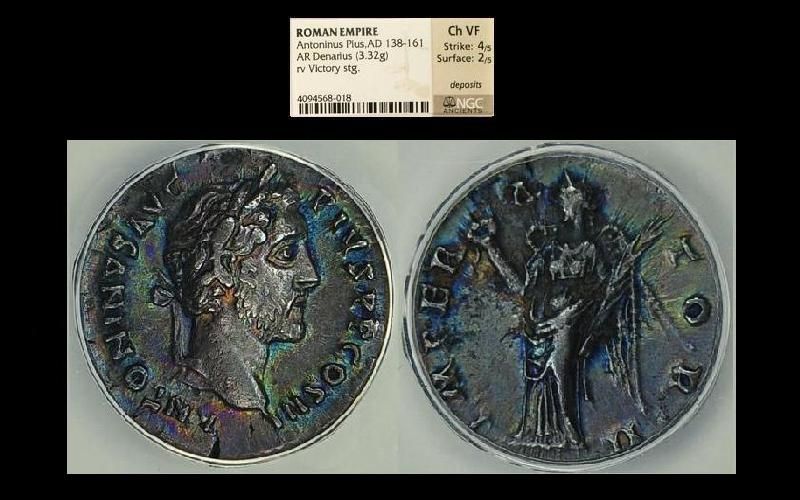
Ancient Rome (Imperial): bronze sestertius of Lucius Verus (161-166 AD), struck ca. 164 AD
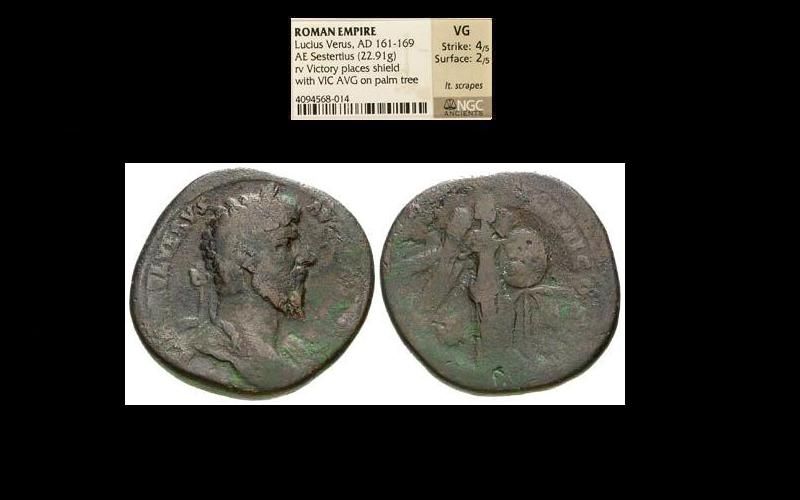
Ancient Rome (Imperial): silver denarius of Julia Mamaea (d. 235 AD)
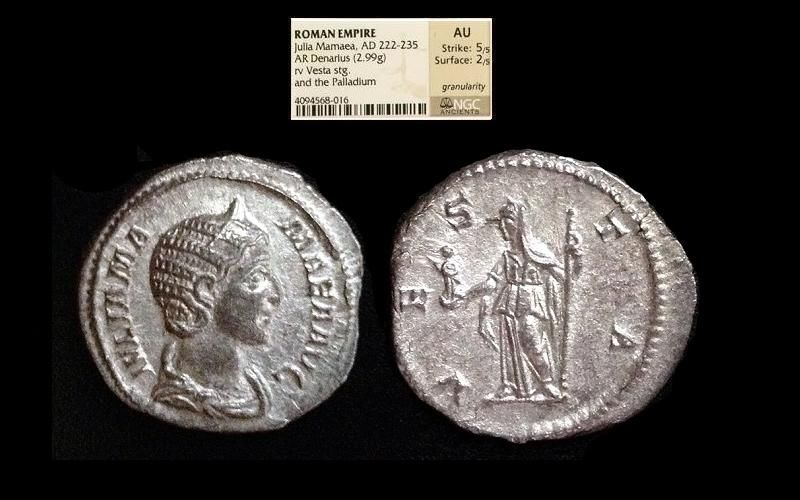
¥Ancient Rome (Imperial): silver antoninianus of Philip I "The Arab" (244-249 AD), struck circa 247 AD
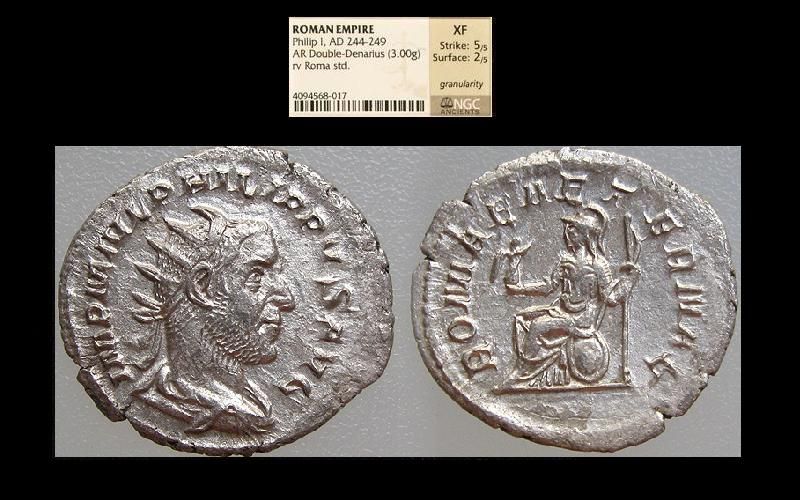
Ancient Byzantine Empire: gold tremissis of Justinian I, ca. 527-565 AD
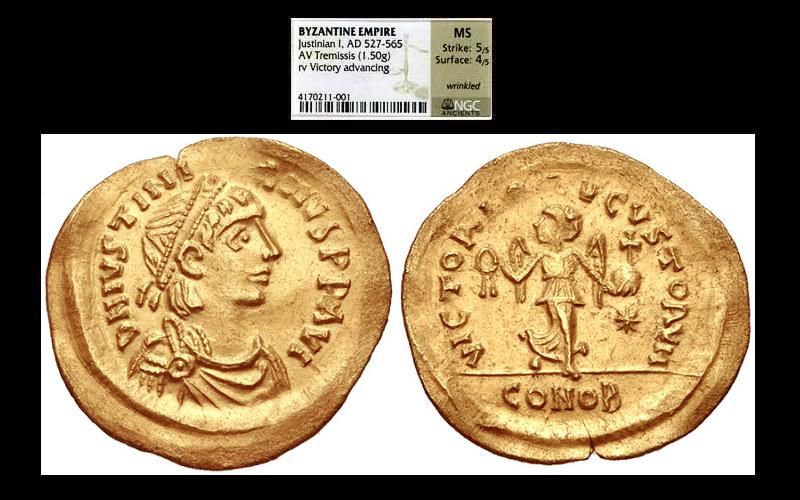
£England (Anglo-Saxon): silver penny of Aethelred II (978-1016 AD), struck ca. 997-1003 AD
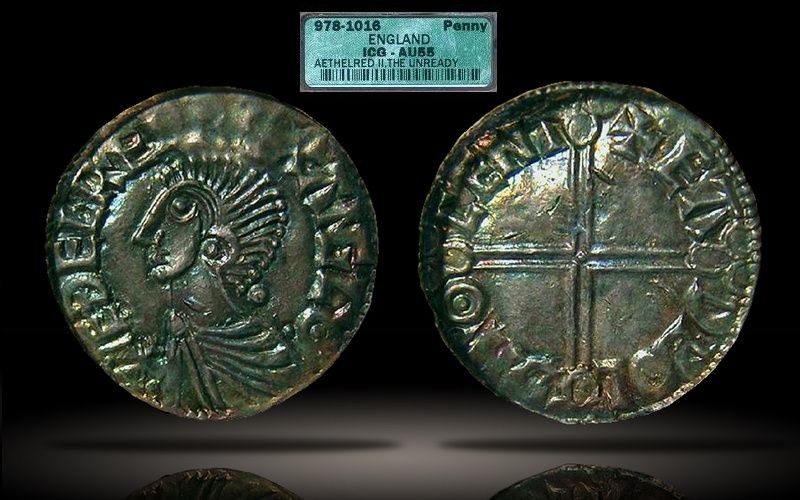
Poland (Lithuania): silver half-groschen of Sigismund II, 1550
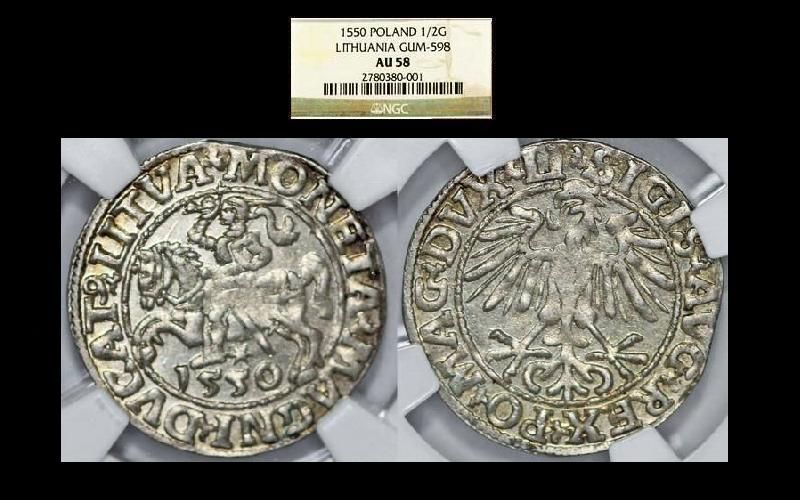
England, silver sixpence of William III, 1697
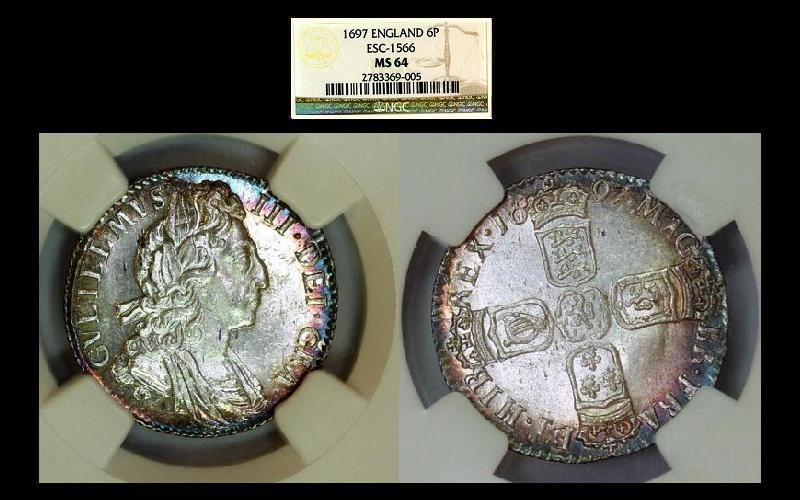
Great Britain, silver "South Sea Company" shilling of George I, 1723
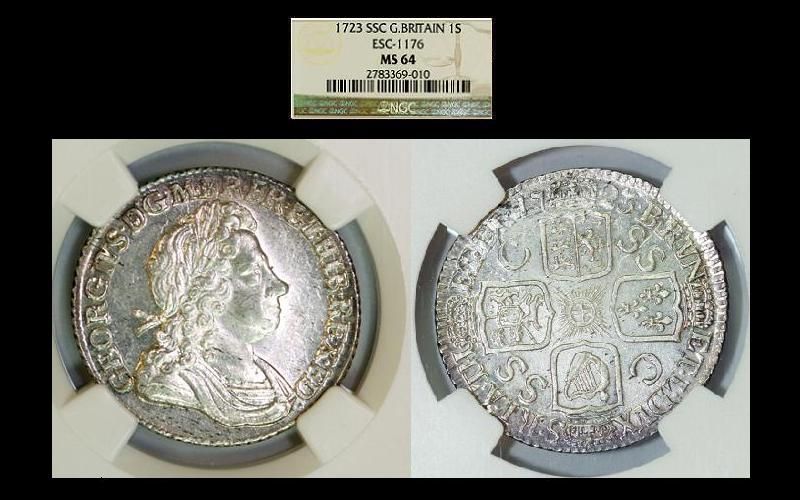
I originally called this set "The 'ADAM' Collection" (for Ancient, Dark Age, and Medieval.) The idea was a freestyle "Box of 20" collection with no parameters except that everything would predate 1600 AD. Now I've even thrown that restriction out the window, so basically the only parameters here are that the coins must be certified and the collection is still limited to twenty pieces. Otherwise, anything goes. In a way, I have narrowed my focus by limiting myself to just twenty slabbed pieces, but on the other hand, I've opened up my horizons to pursue whatever catches my fancy. It sort of feels liberating to be freed of the constraints of collecting "sets" and being a slave to "structure".
I was running my "Twelve Caesars" Roman collection* in a separate box of its own, but after selling a few of those pieces, I rolled the remainder of them into this box. One day I might break all of this out again into separate Boxes of 20 (ancient, medieval, modern, etc.) but for now I lack the budget and attention span to juggle multiple projects, and if I did, the quality of the individual pieces would become watered down.
So now there is but one Box of 20 for my active collection. For semi-active collections that are not likely to see much buying and selling, I do still have my trademark "Holey Gold Hat", my daughter's 1901 British Empire type set, and my detector finds album.

£= my "top" coin; this usually indicates the most monetarily valuable, since my whims and sentimental "favorites" tend to fluctuate.
¥ = my "bottom" coin; this doesn't necessarily imply I dislike it, but means it will likely be the first out once something else is added.
Ancient Greece: Ionia, Teos, silver trihemiobol, ca. 500-450 BC.

Ancient Greece: Kingdom of Macedon, bronze unit, ca. 359-336 BC.

Ancient Greece: Kingdom of Macedon, silver drachm of Alexander III ("The Great"), ca. 336-323 BC, lifetime issue

Ancient Greece: Seleucid Kingdom, bronze AE19 of Antiochus VIII, ca. 121-96 BC

Ancient Rome (Imperatorial): silver denarius of Julius Caesar, lifetime issue, February-March, 44 BC

Ancient Rome (Imperial): silver denarius of Tiberius, ca. 14-37 AD: the biblical "Tribute Penny"

Ancient Rome (Imperial): bronze as of Gaius "Caligula", ca. 37-41 AD

Ancient Rome (Imperial): bronze as of Claudius, ca. 41-54 AD

Ancient Rome (Imperial): silver denarius of Otho, ca. January-April, 69 AD

Ancient Rome (Imperial): silver denarius of Domitian, (81-96 AD), struck ca. 92 AD

Ancient Rome (Imperial): silver denarius of Trajan (98-117 AD), struck ca. 103-111 AD

Ancient Rome (Imperial): silver denarius of Antoninus Pius (1838-161 AD), struck ca. 143 AD

Ancient Rome (Imperial): bronze sestertius of Lucius Verus (161-166 AD), struck ca. 164 AD

Ancient Rome (Imperial): silver denarius of Julia Mamaea (d. 235 AD)

¥Ancient Rome (Imperial): silver antoninianus of Philip I "The Arab" (244-249 AD), struck circa 247 AD

Ancient Byzantine Empire: gold tremissis of Justinian I, ca. 527-565 AD

£England (Anglo-Saxon): silver penny of Aethelred II (978-1016 AD), struck ca. 997-1003 AD

Poland (Lithuania): silver half-groschen of Sigismund II, 1550

England, silver sixpence of William III, 1697

Great Britain, silver "South Sea Company" shilling of George I, 1723

Collector since 1976. On the CU forums here since 2001.
0
Comments